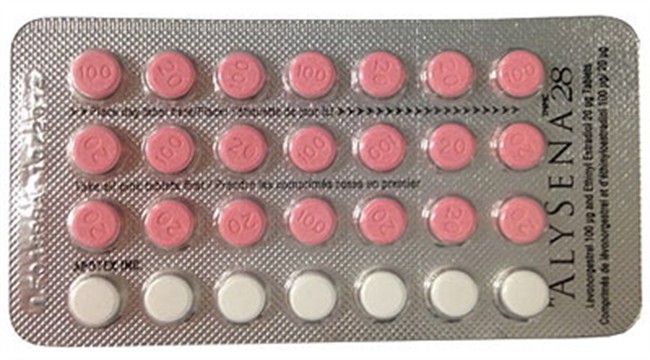Getting off the pill in hopes of having a baby? A new study suggests you may encounter a side effect that could actually reduce your chance of pregnancy.

It has to do with vitamin D, which some fertility experts consider to be as important for women trying to conceive as prenatal vitamins.
The U.S. research, published in the Journal of Clinical Endocrinology & Metabolism found that women who took estrogen-containing contraception (including the pill, patch and vaginal ring), had 20 per cent higher vitamin D levels.
When they stopped taking birth control, those vitamin D levels reportedly took a dive (researchers weren’t able to figure out how much the levels dropped).
The big takeaway?
“Women who are planning to stop using birth control should take steps to ensure that vitamin D levels are adequate while trying to conceive and during pregnancy,” said lead author Quaker Harmon.
Marjorie Dixon, a reproductive endocrinologist and fertility clinic owner, advises her clients to take 1000 to 3000IU of vitamin D daily.
WATCH: Another recent study suggests the birth control pill can affect how you process emotions

Harmon’s research was based on 1,662 African American women, aged 23 to 34, who live in the northern city of Detroit, which is similar in latitude to Toronto. (Latitude is one of the factors that affects a woman’s ability to make vitamin D from the sun; the others are the amount of exposed skin, sun avoidance behavior and the melanin content of the skin).

Get weekly health news
He chose to focus on this group in particular because it’s more commonly associated with vitamin D deficiency. “So small increases or decreases in their vitamin D concentrations may be more important,” he explained.
Reinhold Veith, a University of Toronto professor who’s studied vitamin D since 1974, found darker-skinned Canadian women are also more prone to be deficient in vitamin D.
But he thinks all women who want to get pregnant should take a vitamin D supplement.
“You’d be doing harm if you don’t take it,” Veith said. “The risk to benefit is negligible.”
READ MORE: Do pregnant women need a daily multivitamin? Research says they’re ‘wasting money’
He explains that vitamin D increases the bone strength of the fetus, and appears to have an effect on a child’s bone density when they’re older.
Aside from bone health, scientists are still studying the role of vitamin D in improving a couple’s ability to get pregnant and have a healthy pregnancy.
“There are suggestions that sufficient levels of vitamin D may improve IVF outcomes, reduce the risk of pre-eclampsia and gestational diabetes, and improve fetal growth. However more study is needed.”
READ MORE: Fertility clinic founders share 5 dos and don’ts
A blood test is the only way to check your vitamin D levels, and “the amount of supplementation a woman needs will depend on those levels.” Harmon advises women to consult with their doctor, and develop a plan to get enough vitamin D during conception and pregnancy.
The sun is the biggest source of vitamin D, but you can also get it from fatty fish and egg yolks.
READ MORE: What foods pregnant women should avoid
Health Canada recommends all Canadians over the age of two, including pregnant and lactating women, consume two cups of milk or fortified soy every day. Both are fortified with vitamin D.
It warns, however, that an excess of “vitamin D can cause too much calcium to be deposited in the body, which can lead to calcification of the kidney and other soft tissues including the heart, lungs and blood vessels.”


Comments